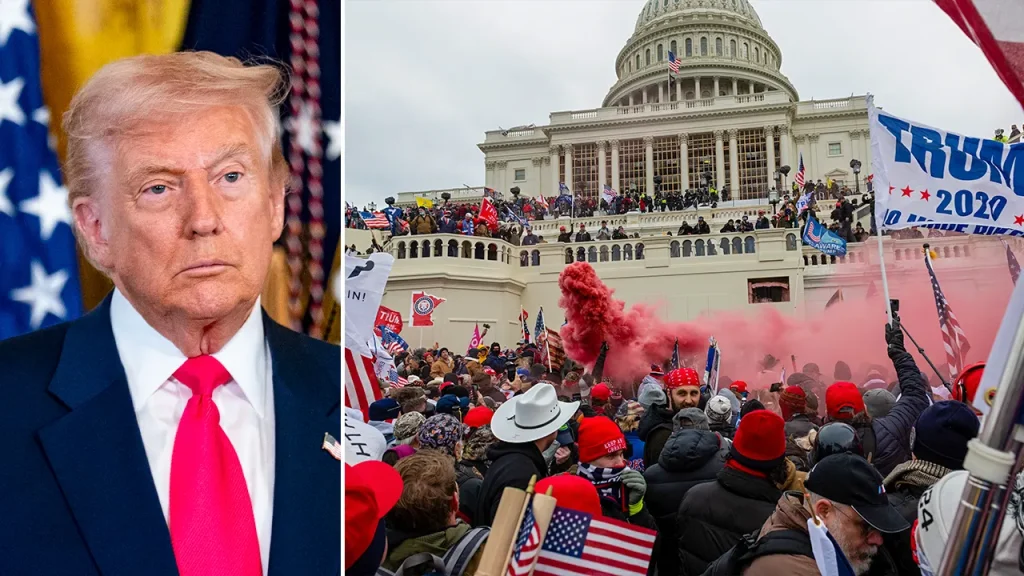Trump Grants New Pardons to Jan. 6 Defendants Facing Additional Charges
President Donald Trump has recently extended pardons to two January 6 defendants who were facing charges beyond their Capitol riot involvement. These new pardons highlight ongoing tensions between different interpretations of justice regarding the events of January 6, 2021, and raise questions about the scope of presidential pardon power. The cases involve Suzanne Kaye, who was serving 18 months for allegedly threatening FBI agents, and Daniel Wilson, who remained incarcerated on firearms charges despite being included in Trump’s earlier sweeping Jan. 6 pardon.
Suzanne Kaye’s case centered around social media posts she made the day before she was scheduled to meet with FBI agents about her possible presence at the Capitol during the January 6 riot. According to the Department of Justice under the Biden administration, Kaye posted videos threatening to “shoot” FBI agents if they came to her home. The FBI discovered these posts on February 8, 2021, and arrested her at her Florida residence nine days later. A White House official noted that Kaye suffers from stress-induced seizures and experienced one when the jury delivered its verdict in 2023. The administration characterized her prosecution as targeting “disfavored political speech” that should have been protected under the First Amendment. U.S. Special Attorney Ed Martin publicly supported the pardon on social media, framing it as corrective action against what he called “Biden’s DOJ weaponization.”
Daniel Wilson’s situation presents a more complex legal scenario that illuminates the boundaries of presidential pardons. Despite being included in Trump’s January 20, 2025 sweeping pardon for January 6 defendants, Wilson remained in prison because of separate firearms charges. He had pleaded guilty to possession of a firearm by a prohibited person and possession of an unregistered firearm, which were discovered during a search related to the Capitol riot investigation. Initially, the Trump Justice Department maintained that these firearms charges fell outside the scope of the January 6 pardon. However, they later reversed this position, citing “further clarity” without elaborating on the reasoning behind this change. Wilson’s legal status became a test case for determining exactly what offenses Trump’s original pardon was intended to cover.
The legal controversy surrounding Wilson’s case prompted judicial scrutiny of the pardon’s language. U.S. District Judge Dabney Friedrich, a Trump appointee, rejected an expanded interpretation of the original pardon, which had commuted sentences for those “convicted of offenses related to events that occurred at or near the United States Capitol on January 6, 2021.” Judge Friedrich argued that the phrase “related to” in the pardon text required “a specific factual relationship between the conduct underlying a given offense and what took place at the U.S. Capitol.” An appeals court supported this narrower reading, ruling that Wilson needed to remain incarcerated during the appeals process. This judicial pushback demonstrates the limitations on presidential pardon power and the courts’ role in interpreting pardon language.
Wilson’s background adds another layer to the pardon controversy. He had previously identified himself as a member of the Oath Keepers and the Gray Ghost Partisan Rangers militia, associations that might contribute to public perception of his case. After his release following the new pardon, Wilson’s attorneys, George Pallas and Carol Stewart, issued a statement describing him as “a good man” who had endured “more than 7 months of unjustified imprisonment.” They characterized Trump’s action as “an act of mercy” that “not only restores his freedom but also shines a light on the overreach that has divided this nation.” This framing presents the pardon as addressing perceived injustice rather than merely exercising presidential prerogative.
These new pardons come as part of Trump’s broader approach to January 6 cases, which began with his sweeping pardons for Capitol riot defendants on his inauguration day. The president’s actions reflect his longstanding criticism of the Justice Department’s prosecution of January 6 participants and his characterization of these cases as politically motivated. Critics view these pardons as undermining accountability for the events of January 6, while supporters see them as correcting prosecutorial overreach by the previous administration. As Wilson returns home and Kaye’s conviction is nullified, the debate continues about how the justice system should respond to the events surrounding the Capitol riot and what limits, if any, should constrain presidential pardon power in such politically charged contexts.


